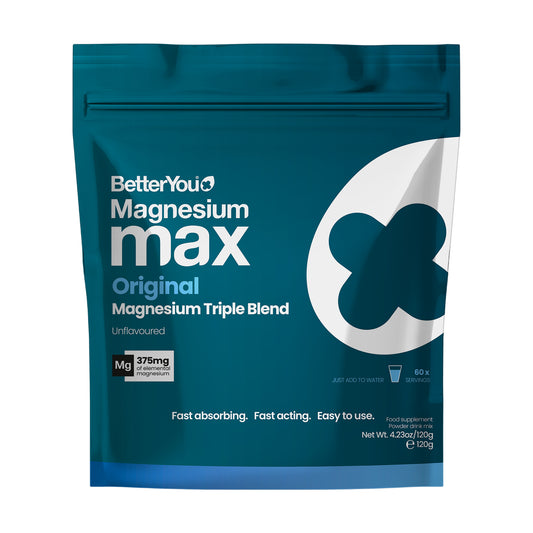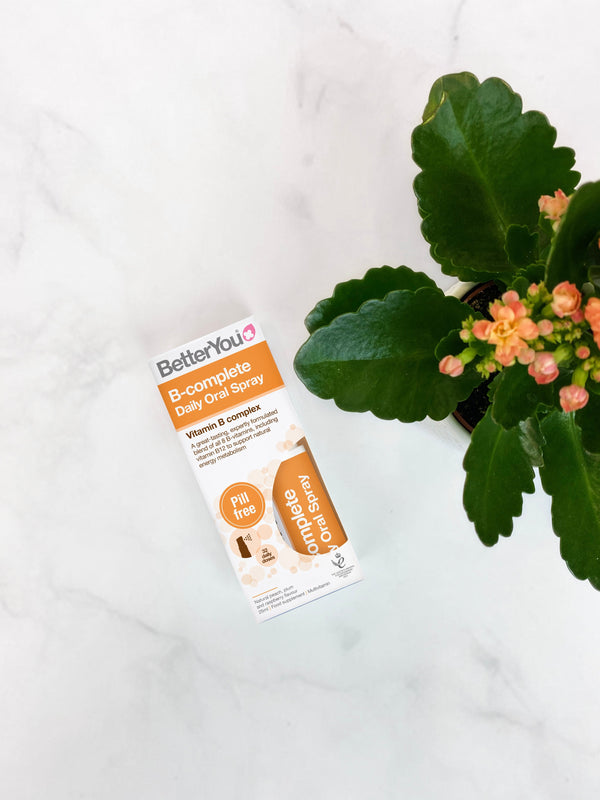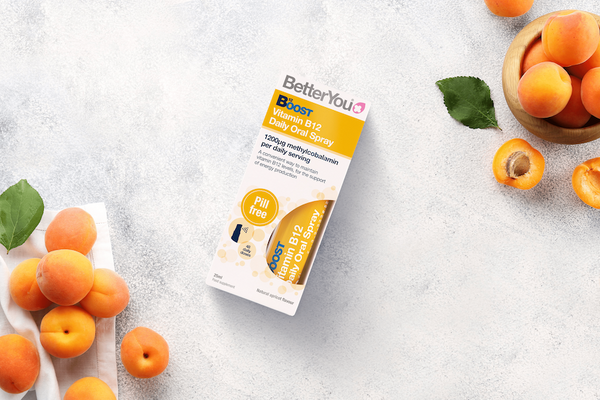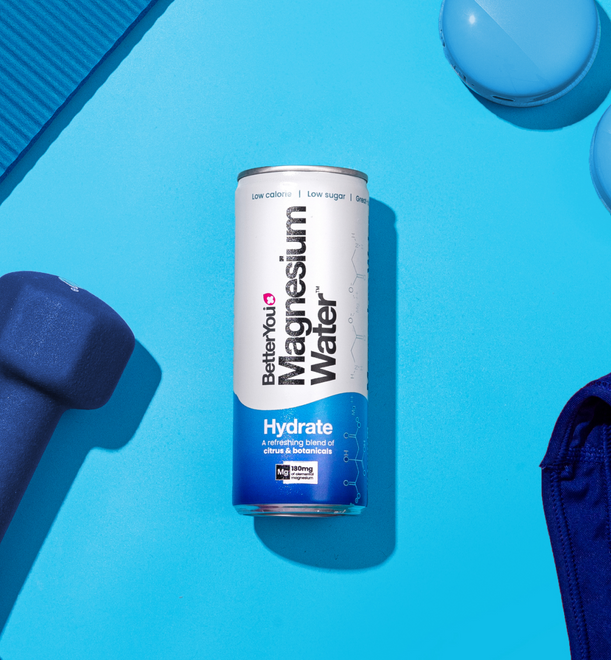Spotting vitamin K deficiency is important to ensuring your vitamin levels are where they should be in order for you to maintain a healthy lifestyle. Your body needs essential vitamins and minerals to function at its best so you can enjoy the things that matter. Vitamin K deficiency can cause bleeding problems, so keeping your vitamin intake at its optimum helps to avoid issues caused by deficiency. Looking out for symptoms such as excessive bleeding can help avoid vitamin K deficiency. Using remedies such as supplements and making dietary choices can help you avoid the unwanted symptoms and health issues that come with vitamin K deficiency.
Table of Contents:
- What is Vitamin K Deficiency?
- 5 Symptoms of Vitamin K Deficiency
- How To Identify Deficiencies
- What Causes Low Vitamin Levels?
- Sources of Vitamin K
- Are You at Risk of Vitamin K Deficiency?
- How To Increase Vitamin K Intake with BetterYou
What is Vitamin K Deficiency?
Vitamin K deficiency is when the level of vitamin K in the body is not high enough to work at its best. Vitamin K is a fat-soluble vitamin responsible for many important roles within the body, including blood clotting and the vital health of your heart. Insufficient, or deficient, levels mean these critical roles cannot be carried out effectively. Vitamin K is responsible for blood clotting, as well as supporting a healthy heart, bones and immune system. Having vitamin K deficiency can seriously affect your health. Someone with vitamin K deficiency may consider taking vitamin K supplements to help optimal intake and avoid these unwanted symptoms.
This essential vitamin helps proteins in your body move calcium into your bones. Reaching the required dosage of vitamin K2 helps to keep the calcium in the blood moving. This is so it ends up in your bones and not depositing in your blood vessels. If this is allowed to happen it can cause hardening, or calcification, which can cause serious health risks. Vitamin D also plays a role in bone health. This vital nutrient helps your body to absorb calcium, so without it vitamin K2 cannot do its job either. You may consider taking vitamin D supplements to support bone health alongside vitamin K.
5 Symptoms of Vitamin K Deficiency
Vitamin K2 is not easily accessible from diet alone, unlike K1, which you should be able to intake the correct dosage of from a healthy balanced diet. If you don’t eat a lot of meat, dairy, or fermented foods, then you could easily suffer from vitamin K2 deficiency. Therefore, it is more common to suffer from vitamin K2 deficiency. There are telltale signs to look out for to indicate that you may be suffering from vitamin K deficiency. Some of the most common symptoms of vitamin K deficiency include:
- Excessive bleeding - because vitamin K plays a role in the proteins in the blood which help it to healthily clot after a cut or wound, having vitamin K deficiency could lead to excessive bleeding.
- Blood under nails - Having blood under the nails could be a sign of vitamin K deficiency, once again relating to the role vitamin K has in the blood. Some vitamins play a role in nail health, and taking a Skin, Hair, & Nail Supplement could be beneficial.
- Heavy menstrual periods - vitamin K has a role in oestrogen regulation, so not having enough vitamin could cause a thicker endometrium, leading to heavier menstruation.
- Bruising - Bruising is caused by minor damage to blood vessels in the skin. If you are suffering from vitamin K deficiency you could bruise easily and often.
- Blood in urine or stool - this again relates to the role of vitamin K in the blood
You should seek medical advice from your GP or other health professional if you think you have these telltale signals of vitamin K deficiency. A medical professional may arrange a test to identify whether you have low nutrient levels or vitamin deficiency. Always consult medical advice before taking supplements.
How To Identify Deficiencies
Identifying deficiencies is essential to avoid health risks and medical issues. Making sure you are providing your body with the vital nutrients it needs to keep you healthy. Ensuring your nutrients levels are at their optimal levels is easy with at home Health Test Kits.
With BetterYou, you can easily check whether you are at risk of deficiencies with:
- Vitamin D Test Kit
- Iron Test Kit
- Vitamin B Test Kit.
Using these tests can identify your risk of deficiency and in turn decrease your risk of health conditions relating to lack of vital vitamins and minerals. Checking your likelihood of deficiencies is important to prevent unwanted deficiencies and help you increase your nutrient intake if necessary.
What Causes Low Vitamin Levels?
Vitamin K deficiency is caused by low levels of this vital nutrient in your body.
Vitamin and mineral deficiencies can be caused by not having high enough levels of essential nutrients. This can be through diet or supplements, either way, your body is not getting what it needs to work properly. Not eating the right food can cause a lack of energy, and put you at risk of low nutrient levels. Without the right amounts, you can easily suffer the impact of vitamin K deficiency.
Vitamin K deficiency can also be caused by your body having an inability to absorb this essential nutrient. This may include people with IBS, coeliac disease, or Crohn’s Disease. The Vitamin K2 Oral Spray is safe for those with dietary requirements, such as diabetics and coeliacs, as well as vegetarians and vegans. In this case, even if you’re eating the right foods and practising a healthy lifestyle, the health risks that come with deficiency could still affect you. A way to avoid the health conditions that come with vitamin K deficiency is to eat more foods that are sources of vitamin K.
Sources of Vitamin K
To support your intake of vitamin K, you can eat more food and drink rich in this vital nutrient. Finding a source of vitamin K2 can aid nutrient function and contribute to your overall health. You can find food and drinks containing vitamin K to aid intake through your diet and avoid vitamin K deficiency. Vitamin K1 and K2 can be found in different foods and drinks.
Some sources of vitamin K include:
- green leafy vegetables – such as broccoli, spinach, kale
- fermented foods, such as kefir
- some fruits, such as blueberries and figs
- meat, including liver
- dairy foods, such as butter and cheese
- cereal grains
- vegetable oils
- eggs
- chickpeas
- soybeans
- green tea
Other vitamins and minerals contribute to bone health, including vitamin C. Encouraging the right amount of vital nutrients with vitamin C supplements can help you look after your bones.
Are You at Risk of Vitamin K Deficiency?
Vitamin K deficiency can affect anyone whose dosage is too low, and cause the common unwanted symptoms listed above. However, vitamin K deficiency may be more likely to affect the people in these categories:
- Young people - Ensuring you’re intaking sufficient amounts of vitamin K as you are growing can help safeguard against bone and cardiovascular issues in later life. It may be worth considering children’s vitamins to support nutritional intake.
- Post-menopausal - After menopause, the levels of oestrogen begin to drop, which can lead to a loss of bone density. This in turn increases risk of fractures and osteoporosis. Taking bone supplements containing vitamin K could be recommended to support bone health and reduce risk of vitamin K deficiency.
- Vegans - Those who have a restricted diet that does not contain dairy are more at risk of developing vitamin K deficiency. Taking vegan supplements is a good way to aid a well-rounded nutritional intake for vegans.
- Malabsorption - Those with malabsorption struggle to absorb the nutrients they intake from their diet. Taking a supplement which avoids the digestive system, like oral sprays, may be recommended to those with malabsorption to avoid the health concerns from vitamin K deficiency.
- Elderly - If you are more advanced in years, you may be more likely to have cardiovascular health risks or loss of bone density.
- Newborns - Vitamin K levels are low in breast milk, and it does not transfer through the placenta. So newborns may be more at risk of vitamin K deficiency.
According to the NHS, adults need approximately 1 microgram a day of vitamin K for each kilogram of their body weight. For example, someone who weighs 65kg would need 65μg (micrograms) a day of vitamin K, while a person who weighs 75kg would need 75μg a day. Intaking the correct amount of vitamin K can help you steer clear of vitamin K deficiency and the unwanted symptoms it can cause.
How To Increase Vitamin K Intake with BetterYou
Should you need to increase your intake of vitamin K, you may consider taking a vitamin K supplement such as a Vitamin K Oral Spray. This daily spray uses intraoral spray technology to support your health with vitamin K. This spray delivers 180μg of vitamin K for optimal dosage.
Supplementing through this easy-to-use, pill-free supplementation method, encouraging your vitamin K intake has never been easier. When sprayed into the mouth, this oral spray is an effective alternative to tablets and capsules. With a great tasting natural peppermint flavour, you can increase your nutrient uptake and help reduce your risk of vitamin K deficiency.
Taking vitamin D and vitamin K together helps support healthy bone function. This is because vitamin D helps the body absorb calcium, and vitamin K helps to direct this calcium to the bones. As the two vitamins work together, the Vitamin D+K2 Spray supplements both at once. This way, you can increase vitamin intake easily and help support your bones in one simple step. Supplementing using a two-in-one oral spray can help you avoid vitamin K deficiency and vitamin D deficiency at the same time.
Pill-free supplements from BetterYou
Our range of vitamin oral sprays and topical magnesium supplements provide a fast, effective alternative to traditional tables and capsules. Scientifically formulated to deliver maximum nutrient absorption, with minimum fuss, to help you feel and live better.
Take control of your health today with our magnesium supplements to aid natural sleep, vitamin D supplements to boost your immunity and our at-home health checks to get a clear picture of your nutrient levels.



















